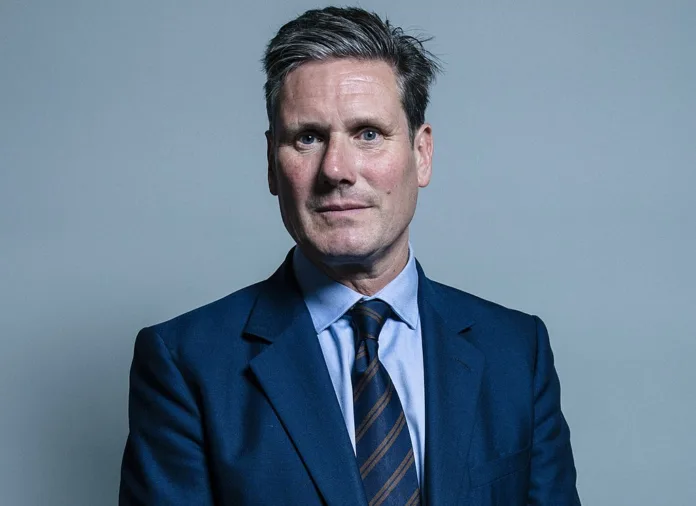The prime minister acknowledges systemic failures and corporate dishonesty in a formal apology to Grenfell Tower victims, as the inquiry’s final report exposes decades of negligence and malpractice
In a moment of profound reflection, Prime Minister Keir Starmer has issued an apology on behalf of the British state to the victims and families affected by the Grenfell Tower fire. This apology comes in the wake of the publication of a damning final report from the Grenfell Tower Inquiry, which reveals extensive failings across government and industry.
The Grenfell Tower fire, which occurred in June 2017, claimed the lives of 72 people and left countless others traumatized. The inquiry, chaired by Sir Martin Moore-Bick, has spent seven years delving into the causes and consequences of the disaster. The final report, spanning 1,700 pages, highlights a litany of failures, including “systematic dishonesty” from key companies and severe lapses by government bodies.
Embed from Getty ImagesStarmer’s apology addressed the victims directly, acknowledging the country’s failure to protect its most vulnerable. He expressed deep regret for the systemic shortcomings that led to the fire and praised the courage of those who relived their traumatic experiences during the inquiry. His statement underscored the urgent need for change to prevent future tragedies.
The inquiry identified several companies, including Arconic, Kingspan, and Celotex, as having engaged in deceptive practices that contributed to the spread of the fire. The report also criticized the architects Studio E, the builders Rydon and Harley Facades, and the Royal Borough of Kensington and Chelsea’s building control department for their roles in the disaster.
In response to the report, Prime Minister Starmer announced immediate measures, including barring the implicated companies from future public contracts. This move is intended to address the report’s findings and demonstrate a commitment to rectifying the issues exposed.
The report also calls for extensive reforms to building safety regulations and highlights the ongoing issue of unsafe cladding on buildings across the UK. Despite some progress, many structures remain inadequately addressed, and the report’s findings point to a broader failure to enforce safety standards.
The Metropolitan Police have indicated that it will take at least three years to complete its criminal investigation into the fire. This lengthy process reflects the complexity of the case and the need for thoroughness to ensure justice for the victims.
Starmer’s apology and the inquiry’s findings have sparked a renewed debate about the role of government and corporate responsibility in preventing such disasters. The Grenfell Tower tragedy remains a stark reminder of the consequences of regulatory failures and corporate negligence.
THE GUARDIAN
The recent public inquiry into the Grenfell Tower fire has delivered scathing findings about three companies involved in supplying materials for the ill-fated refurbishment. The fire, which resulted in 72 deaths in 2017, was exacerbated by combustible cladding and insulation products from Arconic, Kingspan, and Celotex. Despite the damning conclusions, these companies have each denied wrongdoing.
Arconic, which produced the cladding panels used on Grenfell Tower, was found to have “deliberately and dishonestly concealed” the fire risks of their Reynobond PE product. The inquiry accused Arconic of misleading the market about the product’s safety. Arconic responded by asserting that their products were legal and safe, and that they did not deceive any certification bodies or customers.
Kingspan, which supplied the K15 insulation, was found to have engaged in “deeply entrenched and persistent dishonesty” to market their product as suitable for high-rise buildings, despite its flammability. Kingspan claimed the inquiry highlighted that the primary cause of the fire spread was the cladding, not their insulation, and asserted they have since made significant improvements to their practices.
Celotex, the main supplier of foam insulation, was criticized for “dishonest” marketing practices and misleading test results concerning their RS5000 insulation. Celotex argued that their internal review and subsequent independent tests showed their product met safety standards, and they emphasized improvements in their processes since the fire.
The responses from these companies have been criticized for lacking accountability, leaving survivors and bereaved families frustrated as they seek justice. The inquiry’s findings underscore a broader issue of corporate responsibility in building safety, which remains unresolved as the companies continue to deny significant fault.
BBC
The Grenfell Tower fire of 2017 has left a lasting impact on many Londoners, including Hamid El-Ouahabi, a sports coach who lives in Earls Court, and Martin Raychev, a leaseholder in Barnet. Both are grappling with the fallout from unsafe cladding and remediation issues in their buildings, which echo the dangers highlighted by the Grenfell tragedy.
Hamid El-Ouahabi is deeply concerned about the safety of his home, which, like many others, has been found to have flammable exterior cladding. Despite reassurances from his landlord, Notting Hill Genesis, that remediation work will be fully funded and interim safety measures are in place, Hamid remains anxious. His worry reflects the broader issue affecting thousands of residents in similar situations.
Martin Raychev bought his flat in 2015 and soon discovered that it had flammable cladding. The cost and disruption of addressing these issues have been significant. After the Grenfell fire, he faced a surge in service charges and has struggled with stalled remediation work due to financial and administrative setbacks. His building’s safety improvements halted when the freeholder went into administration, leaving unresolved issues and a substantial financial burden. Martin’s situation is exacerbated by increased service charges and difficulties in selling or remortgaging his flat.
Government action, including a pledge to ensure leaseholders in tall buildings are not financially burdened by cladding remediation, has been criticized for its slow pace. With half of the identified buildings still awaiting work, campaigners like Giles Grover call the situation a “national scandal,” stressing the urgent need for comprehensive action to address both safety and financial challenges for affected residents.
Prime Minister Sir Keir Starmer has promised to expedite the process and hold freeholders accountable, but residents like Hamid and Martin continue to feel trapped in unsafe conditions, emphasizing the need for immediate and effective solutions.
